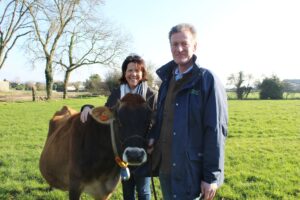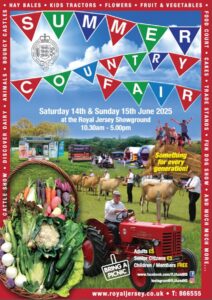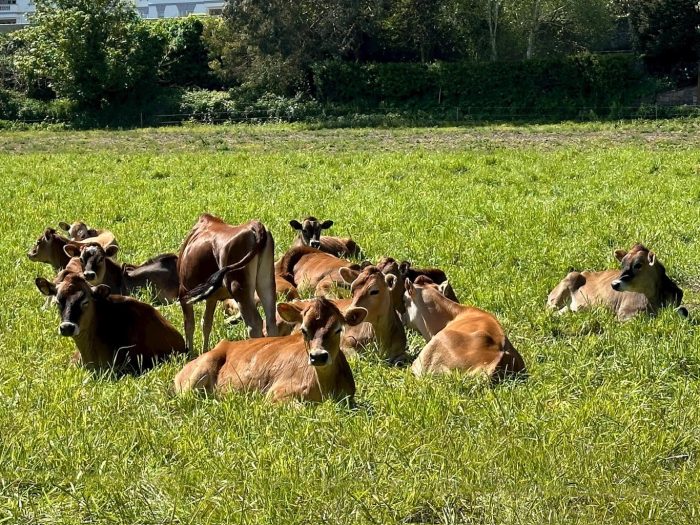
How now, brown cow?
‘Getting along nicely, thank-you, and much more certain about our future,’ might be the moos back from the fields.
Cows don’t usually have too much to say about Jersey agricultural politics (or about anything else, really), but speaking for them and for dairy farming is the newly elected president of the Royal Jersey Agricultural and Horticultural Society, Paul Houzé.
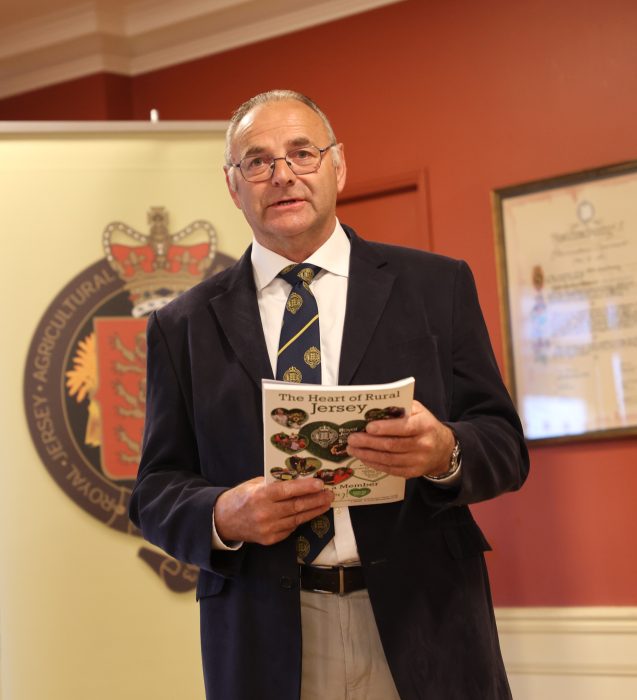
‘Yes, I am optimistic about the future,’ he said, ‘because the industry is better placed now than it has been for many a long year. We are now getting much more generous support from Government, which has finally realised the importance of having agriculture in the Island, and the fact that us farmers – not just dairy farmers but growers as well – are the custodians of the countryside, and that our role is not just the important one of providing food, but of maintaining the countryside as we know it.
‘The industry now receives around £6.7m of States support per annum, which is a big increase – but when you look at the States total spending for a year, it’s not that much. But it’s going to make a very significant difference, and already we are seeing a lot of farms reinvesting, which I think is really encouraging. There were a number of farms that were already starting to question whether their next tranche of investment would actually be worthwhile, but with the package and the assurances that we have been given by the Economic Development Department, we can now move forward and invest.
‘I think it has been the most positive developments in the industry for years. It’s been a game changer. But despite the extra States aid, we’ve got to stand on our own two feet, and make sure we remain viable to maintain and increase production.’
Another reason for optimism is that since 2008 the Island dairy industry has been able to source genetics from anywhere in the world. Furthermore: ‘I don’t think the movement of genetics is going to be one-way. I can see us exporting as well as importing. We’ve now got to a stage where the standard of the cows in Jersey is matching most other places.
‘I see a good future for Jersey starting to produce its own bulls to breed on, and eventually we could offer back their genetics to the rest of the world. That has happened already with one or two bulls, and it’s up to us to let the world know that our breeding expertise as an Island is as good as any others and that we have an excellent product to offer the world.’
Mr Houzé continued: ‘I’m pretty proud of what our generation have done since taking over our farms in the last 20 to 30 years. We have put the focus on improving the Jersey cow, and I think we have done that very well. Our job isn’t complete yet; the development of the Jersey cow will continue.
‘The industry has always tried to help itself, and although it was a long struggle to import fresh pedigree genetics into the Island, once we had achieved that, it was only two years later that we were able to sell the Five Oaks dairy, and rebuild a brand new one in Trinity. All the proceeds from the sale were reinvested into the new dairy. I think that speaks volumes about the passion that exists in the Island to continue milking cows.’
The Houzé family farm is Lodge Farm, Maufant. It keeps 220 milking cows and 140 youngstock. They also rear Aberdeen Angus calves.
‘And you don’t have to be a farmer or a gardener to join us if you have an interest in being at the core of the Island’s countryside sector.’
There are now only 12 herds in the Island, of which two are organic. Six of the herds supply 80% of the Dairy’s milk. The size of Lodge Farm’s might be said to be middle-ranking. There is a very large herd at Trinity Manor, by a long way the biggest herd, with 420 milking cows, twice the size of the Lodge Farm herd. Quite a big difference, then to the situation on Jersey farms in 1972, when Mr Houzé came to the farm, aged 15 ½, to work for his father, Marcel.
‘When I started out in farming,’ he said, ‘we weren’t classed as dairy farmers, we were mixed farmers, as was virtually every other farm. We had a very average sized herd, milking 18 to 20 cows. It was only in the 1980s and 1990s that herd sizes increased quite fast.
‘During my farming lifetime, if you count the cattle and the potatoes and the daffodils, and the indoor iris, we’ve had 21 different enterprises, so I get a bit rattled when people suggest we should diversify! Each one ran until it became economically unviable!
‘But the cattle remained; the marketing of potatoes became very difficult in the late 1990s, and that’s when we withdrew, but we doubled the size of the herd. Since then, we’ve been dairy farmers.’
Asked what sort of contribution the dairy industry made in financial terms to Jersey’s GDP, he said it was very difficult to measure, but it was much more than what most analysts might suggest, as there are a lot of subsidiary or ancillary industries that supplied it and benefitted from it.
But, in terms of the Island’s character, the importance of the Jersey herd is vast, shaping the nature of the countryside, and making a huge contribution to Island life.
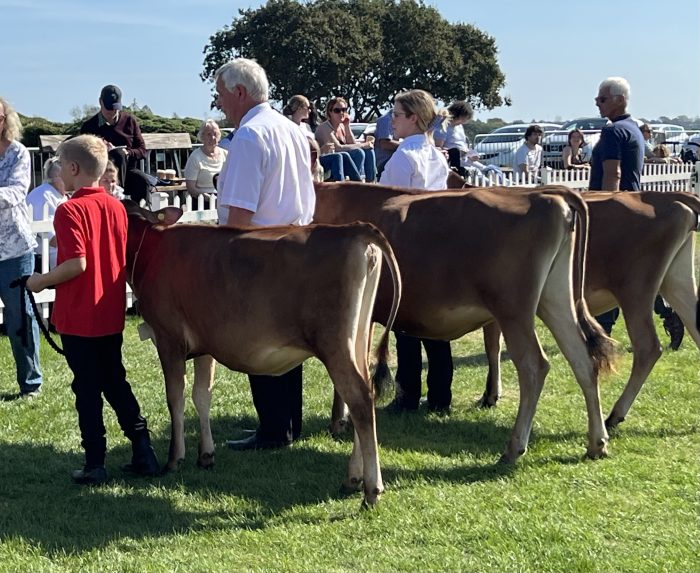
‘The other thing the dairy industry offers is food security, in terms of milk and other dairy products. When the boat doesn’t sail, at least we can make sure that Islanders can still have milk. The Jersey cow is iconic for the Island.’
In the 1901 census there were 12,000 cows in Jersey, compared to just over 2,000 at the moment. With so few herds (but, in Jersey terms, large ones), Mr Houzé agreed a major worry was that if, for example, Foot and Mouth Disease took out one of the big herds, it would be the end of the local dairy industry.
‘Safeguarding the Island herd is probably top of the list of things that the RJA&HS has to look at. We’ve always had a very good relationship with the States vet officer, and preventative measure can be put into place, as and when necessary. There’s a lot of biosecurity measures that we can take; we get pre-warnings about the incidence of diseases throughout Europe; tropical diseases that used to be confined to Africa are now creeping up through Europe, because of climate change, so we’ve got to be wary.’
The issue of a minimum wage remains a substantial challenge to all sectors of agriculture.
‘We feel that we pay our staff quite well, and house them in good accommodation, and the package we offer them is equal to the UK, and is certainly much better than most parts of the world. So, we haven’t got a problem with the pay, per se, but we’ve got to keep it at a level that allows us to make enough profit to keep reinvesting in the business. Thankfully, the dairy industry doesn’t rely so much on seasonal staff – our staff are permanent.’
Attracting younger people into farming is another challenge. There is a younger generation moving into farming, which is quite encouraging, he said, but more younger people were needed, especially people who could not inherit a farm but wanted to start on the farming ladder.
‘We are currently looking at the possibility of organising starter farms. That is a project that the Dairy has already kicked off, and the RJA&HS will be working closely with it. But it has to be put on a firm, businesslike footing. There’s no point in getting someone to start farming just to live the dream. The finances have to stack up, and it’s not easy, because the capital costs of setting up a farm are huge.’
Aged 67, Mr Houzé has not retired, exactly, and doesn’t know if he will ever fully do so. But he feels that increasingly he can leave the cattle herd in the capable care of his daughter, Becky, and Martin Pallot, who looks after the agronomy of the farm – their right-hand man when it comes to machinery and crops. So, a little more time for hobbies such as travelling and fishing — and, more importantly, the presidency of the RJA&HS (or rather, ‘the Royal Jersey Society’ as it wants to rebrand itself.)
‘I realise that I’ve got lot of catching up to do. I first went on to the Society’s council in 1978, and I’ve been on and off it ever since. My main roles have been in breed improvement, which wasn’t quite so much up for discussion back in those days; there was no such thing as a breed improvement committee or any focus on that. It was more about shows, udder formations etc.’
One of the most important aspects of the Society’s work has been their Africa programme: it has been supplying genetics to improve native breeds, but it is also organising farm systems, farming and cattle-raising study courses in places which not necessarily have got an organised system.
Mr Houzé said he was greatly looking forward to working with and supporting the Society’s Horticultural Department in developing their shows. He hopes he might get some gardening tips from them!
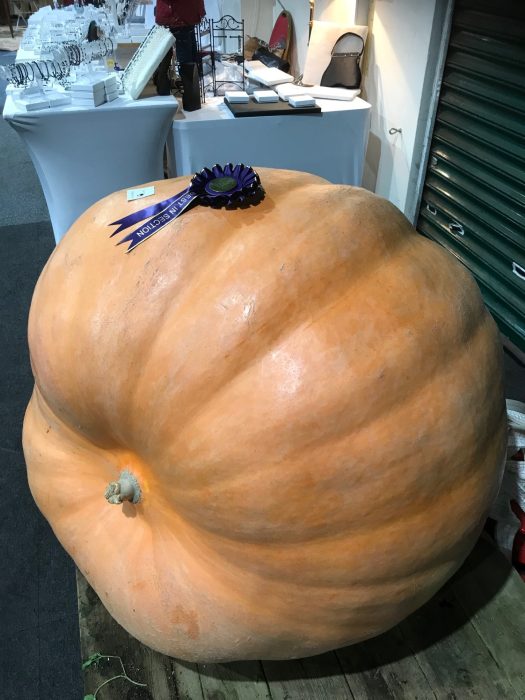
‘There’s a lot to look forward to. Another key role the Society is continuing to try and put across the message that agriculture is up running. There are so many facets of our industry that have a positive effect on Island life and the countryside.
‘And you don’t have to be a farmer or a gardener to join us if you have an interest in being at the core of the Island’s countryside sector.’
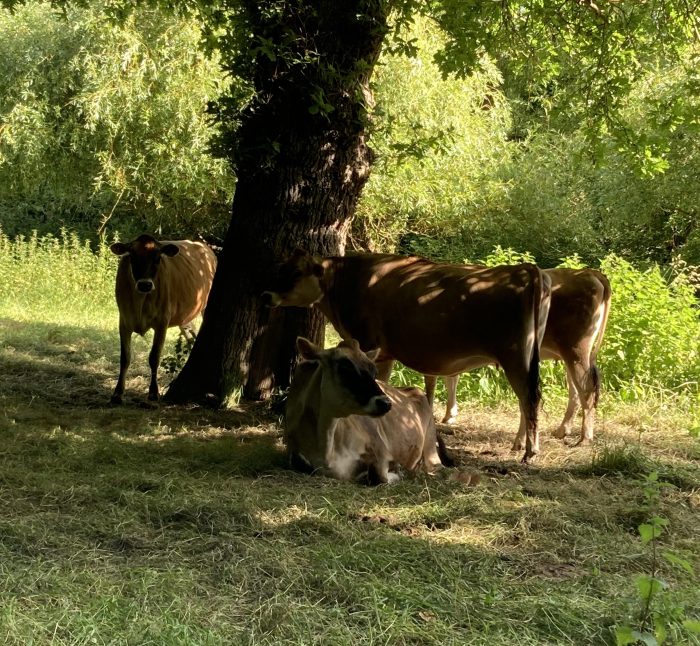
This is an expanded version of an article that appeared in the JEP on Saturday 25 May 2024, reprinted with their permission



